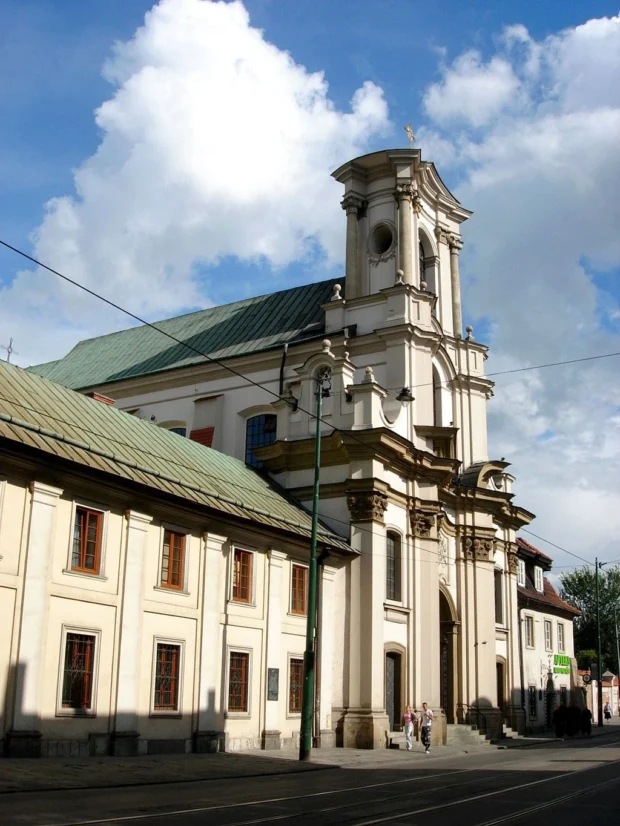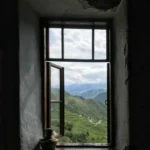Walking through Krakow is like stepping into a living storybook. The city has a long past, full of kings, artists, and ordinary people who shaped its streets, markets, and buildings. Whether you come for the famous sights or the small corners off the beaten path, Krakow offers a rich taste of Polish culture and history. The Old Town, with its huge market square, is the heart of the city, but there’s much more beyond the main streets-quiet courtyards, colorful neighborhoods, and old castles. Let’s find out what makes Krakow special and how to enjoy it fully.
Table of Contents

Old Town and Main Market Square Sights
The Main Market Square (Rynek Główny) is one of Europe’s largest medieval squares. Imagine it buzzing with street performers, sellers, and visitors all day long. In the middle, the Cloth Hall (Sukiennice) stands proudly with its Renaissance arcades. Inside, you’ll find stalls selling hand-made crafts like amber jewelry and wooden toys-perfect for gifts or souvenirs. The square is also home to St. Mary’s Basilica, where every hour a trumpet signal plays from the highest tower, a tradition with a dramatic story behind it. Legend says the signal ended abruptly during a Mongol attack in the 13th century, and the trumpeter died mid-note defending the city.
To deepen your visit, the guide about Wawel Castle reveals royal stories and local legends near Krakow’s Old Town.

Not far from the square, the imposing Wawel Castle watches over the Vistula River. This royal fortress was once the home of Polish kings. Walking through its courtyards and rooms, you can imagine the royal banquets, political meetings, and daily life of centuries ago. The castle hill is also a great spot to see the city from above, especially when the sun sets and the old rooftops glow orange.
After enjoying Krakow’s historic Old Town, you might be interested in the extensive underground fortress that highlights Luxembourg’s military past. Visit Casemates du Bock for a unique experience beneath the city’s surface.

Finding Quiet Corners and Hidden Krakow
While the Old Town is lively, some of Krakow’s charm hides in less crowded areas. Just a short walk from the square is the Jewish Quarter, Kazimierz. This district has a soulful mix of history, art, and cafés. Old synagogues stand side by side with modern galleries and cozy bars. You might catch live folk music in some places, a way locals honor traditions while welcoming new ideas.

One quiet gem is the Planty Park, a green belt that circles the Old Town where old city walls once stood. It’s perfect for a peaceful stroll, with benches under chestnut trees and the soft sound of birds. Nearby, the Schindler Factory museum tells a powerful story of Krakow during World War II-it’s emotional but important to understand the city’s past.

Taste Poland in Krakow’s Food Neighborhoods
Eating in Krakow is a joy for the senses. Pierogi-Polish dumplings filled with cheese, potatoes, or meat-are everywhere, but try different fillings to find your favorite. For a real local feel, head to the district of Podgórze, across the river from Kazimierz. Here, small eateries serve hearty soups like żurek, a sour rye soup with sausage and egg, perfect on chilly days.
To expand your Polish journey beyond Krakow, explore Warsaw’s famous landmarks and culture for a vibrant city experience.

Street markets in the Old Town and Kazimierz offer seasonal fruits, fresh bread, and cheeses. Don’t miss tasting oscypek, a smoked cheese made from sheep’s milk, often grilled and served with cranberry sauce. It’s a small bite with a big flavor punch. For sweets, try kremówka, a light cream cake once said to be a favorite of Pope John Paul II, who was born near Krakow.

Getting Around Krakow Easily
Krakow’s transport system is easy to use and budget-friendly. From John Paul II International Airport, a frequent bus ride brings you straight to the city center in about 40 minutes. Once in the city, trams and buses cover most areas reliably. Buy a ticket at a kiosk or from a machine, then validate it on board. Walking is often the best way to see the historic center-its compact streets are perfect for slow discovery, and every corner has a story waiting.

Living Like a Local: Staying and Customs
If you want to feel part of Krakow, try staying in neighborhoods outside the main square, like Podgórze or Kazimierz. These areas mix apartments with small shops and cafés, where mornings start with fresh coffee and pastries. You’ll hear Polish chatter and maybe a friendly “Dzień dobry” (good day) from shopkeepers.

When visiting, remember a few simple customs: When entering a church, dress respectfully-no shorts or sleeveless tops. Poles appreciate a polite greeting like “Dzień dobry” or “Cześć” (hi), especially in smaller shops or markets. And if invited to a home, bringing a small gift like flowers or sweets shows good manners.

Culture, Festivals, and Everyday Life
Krakow’s culture is a blend of old and new. The city hosts many festivals, from classical music concerts in summer to folk dance shows in winter. In the streets, you might spot people playing traditional instruments or painting colorful murals on walls. Once, I stumbled upon a procession of people in old costumes singing songs from nearby villages-an unexpected moment that felt like time travel.
Art lovers can visit many galleries and museums. The National Museum has impressive collections of Polish paintings, while the Ethnographic Museum offers insight into rural traditions and crafts. Krakow also has a thriving theater scene, with performances ranging from Shakespeare to modern plays, often in small, intimate theaters.
One quirky fact: Krakow has its own dragon legend. Near Wawel Castle, a cave named Dragon’s Den is said to be the home of the Wawel Dragon, a fierce beast from old stories. Today, a giant dragon statue breathes fire at visitors-a fun reminder that Krakow’s legends are still alive in its streets.
Final Thoughts on Krakow’s Spirit
What makes Krakow special is its mix of history and everyday life, the way old stone walls hum with stories while cafés fill with laughter. It’s a city where you can admire grand castles, but also enjoy a simple walk in a park or a plate of pierogi shared with new friends. Krakow teaches us that culture lives not only in museums but in conversations, flavors, and quiet moments between the tourist crowds.

Eastern Europe travel specialist uncovering hidden gems from the Baltics to the Balkans.
- Carriages near Saint Mary Basilica. Krakow, Poland by Ввласенко on Wikimedia Commons – cc by-sa 3.0
- Krakow – Cloth Hall from Basilica – 1 by Ingo Mehling on Wikimedia Commons – cc by-sa 4.0
- 20110930 Krakow Wawel 0412 by Jakub Hałun on Wikimedia Commons – cc by-sa 3.0
- Krakow – Rynek, St.Mary Basilica by Ingo Mehling on Wikimedia Commons – cc by-sa 4.0
- Krakow St.Trinity Church 20060806 1638 by Jakub Hałun on Wikimedia Commons – cc by-sa 3.0
- Kraków, Fabryka Schindlera – oddział Muzeum Historycznego Miasta Krakowa – fotopolska.eu (132156) by mamik on Wikimedia Commons – cc by-sa 3.0
- Planty Park, Kraków (50550015583) by Andrew Milligan sumo on Wikimedia Commons – cc by 2.0
- Building of the National Museum in Kraków, 01 by Chris Olszewski on Wikimedia Commons – cc by-sa 4.0
- Jagiellonian University, Professor's Garden, entrance , 17 Jagiellonska street, Old Town, Krakow, Poland by Zygmunt Put Zetpe0202 on Wikimedia Commons – cc by-sa 4.0
- 2015 Kraków, Barbakan 02 by Marcin Konsek on Wikimedia Commons – cc by-sa 4.0
- Florian Gate 14 by Scotch Mist on Wikimedia Commons – cc by-sa 4.0
